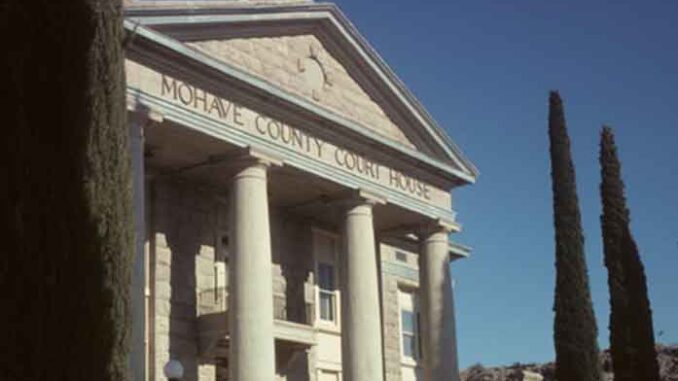
The Mohave County judge who promised to explain by noon Monday why he rejected Abe Hamadeh’s motion for a new trial issued that explanation about 90 minutes late, and said if the plaintiffs do not agree with him they are welcomed to appeal.
The only problem is that Judge Lee Jantzen’s ruling is not yet appealable because he failed to sign it as required by Arizona Supreme Court rules.
And the missing signature is not the only problem legal observers noted with the ruling – in the first sentence of the order Jantzen misidentified Hamadeh’s election challenge against Kris Mayes as involving the race for secretary of state, not attorney general.
What incompetence!
Arizona Judge Lee Jantzen rules in the @AbrahamHamadeh case and can’t even name the correct office for the ruling.
He says @krismayes is the current Secretary of State…
The Arizona legal community must demand competence from their courts. #embarrassing pic.twitter.com/C5vbuvZHwB
— Richard Grenell (@RichardGrenell) July 17, 2023
Even if Jantzen had signed his order, legal experts have differing opinions on whether an appeal would be considered, as one of those unresolved mattes is the lack of a signed order from Dec. 23 when the judge dismissed Hamadeh’s election challenge.
“How do you appeal the denial of a new trial when there is no official signed order that Mr. Hamadeh lost the original trial?” one attorney noted to Arizona Daily Independent.
Hamadeh, Mayes, and about 2.5 million voters have been waiting more than six months to find out if Jantzen would grant a new trial at which lawyers for the Republican attorney general candidate believed they could show Hamadeh, not Mayes, actually received the most lawful votes on Nov. 8.
That judge announced last Friday he would not grant Hamadeh’s request for a new trial, but noted his reasons would not be revealed until Monday, the deadline under court rules.
Jantzen, who has been censured and reprimanded by the Arizona Commission on Judicial Conduct for tardy decisions, then missed his self-imposed deadline of Noon on Monday by nearly 90 minutes.
“The Court recognizes the difficulty in the task that (Hamadeh) took on by filing this case,” Jantzen wrote in the July 17 order. “The election contest statutes are extremely difficult to comply with and the time constraints are real.”
Jantzen also cited his conclusion at the end of the Dec. 23 trial that Hamadeh “did not meet” the burdens set forth in law for having the election results of the attorney general race changed. Further, a new trial with extended discovery “is not available under the road map laid out by the Legislature,” he wrote.
The judge failed on Monday to mention three outstanding motions he had promised to address by noon. One involves the long overdue final judgment order of the outcome of the Dec. 23 trial while another seeks judicial approval of payment for work performed in the case by several ballot inspectors eight months ago.
The lack of a signed order may delay an appeal, but Hamadeh could file a petition for special action in the next week or so. He insists he is committed to asking the Arizona Supreme Court to hear the case.
The court’s ruling is an invitation to an appeal, and we will do just that.
— Abe Hamadeh (@AbrahamHamadeh) July 17, 2023
“The dangerous precedent this would set on our elections would be devastating and will further undermine confidence in our elections,” Hamadeh said of what he called the “chilling effect” of Jantzen’s ruling.
“Our legal system cannot reward deceit and punish honesty,” he added. “I have every confidence that the (Arizona) Supreme Court is not going to let this precedent stand. It would be a terrible precedent in terms of the legal community to have the government be able to withhold evidence and get away with it.”
READ MORE:
